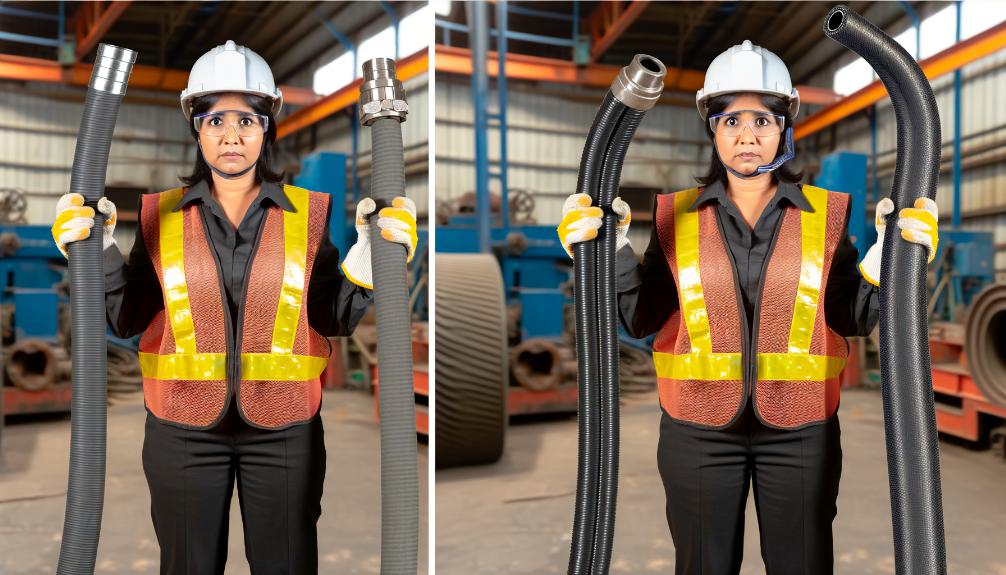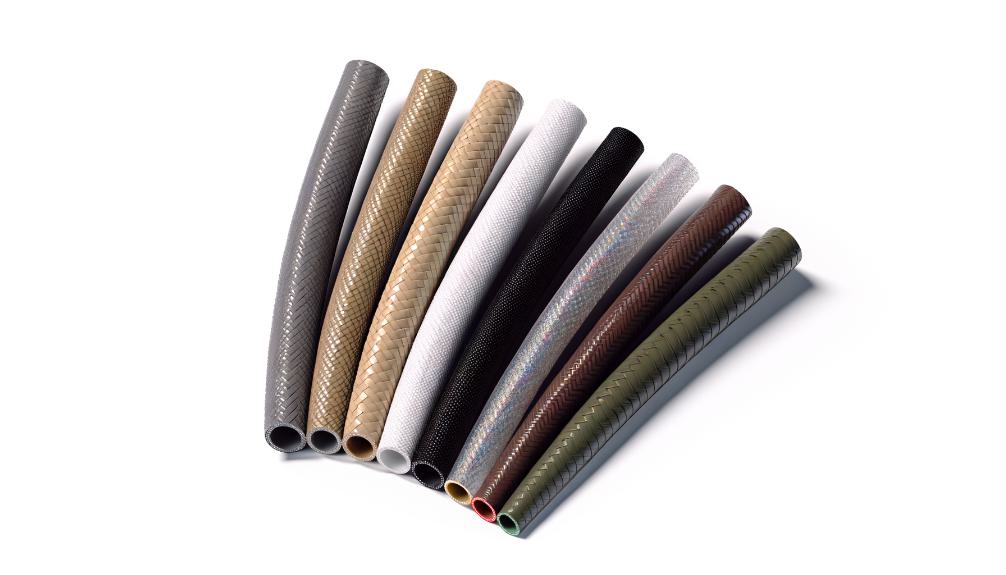Choosing lightweight assemblies for your composite hoses offers several advantages, greatly boosting your operational efficiency. These assemblies enhance flexibility and handling, allowing for quick and safe manoeuvring in various environments. You'll experience reduced operator fatigue, as the lighter weight decreases physical strain, enabling more efficient task completion. Safety features are also improved, reducing the risk… Continue reading Why Choose Lightweight Assemblies for Composite Hoses?
Category: Composite Hoses
Guide to Choosing Top Composite Hoses for Chemicals
When selecting top composite hoses for chemicals, you'll need to evaluate their material flexibility and resistance to various chemicals and temperatures. Look for hoses made with polyamide fabrics and thermoplastic polyurethane to prevent kinking and guarantee durability. Always refer to the manufacturer's chemical resistance charts to match the hose with the specific chemicals and operating… Continue reading Guide to Choosing Top Composite Hoses for Chemicals
What Are the Best Materials for Composite Hoses?
For peak performance in your composite hoses, you should consider materials like polypropylene for its excellent chemical resistance and thermal stability. Polyester reinforcement adds essential durability and UV protection, maintaining hose flexibility and structural integrity. Don't overlook polyamide; its tensile strength and adaptability make it crucial for handling various fluids while withstanding environmental challenges. Stainless… Continue reading What Are the Best Materials for Composite Hoses?


